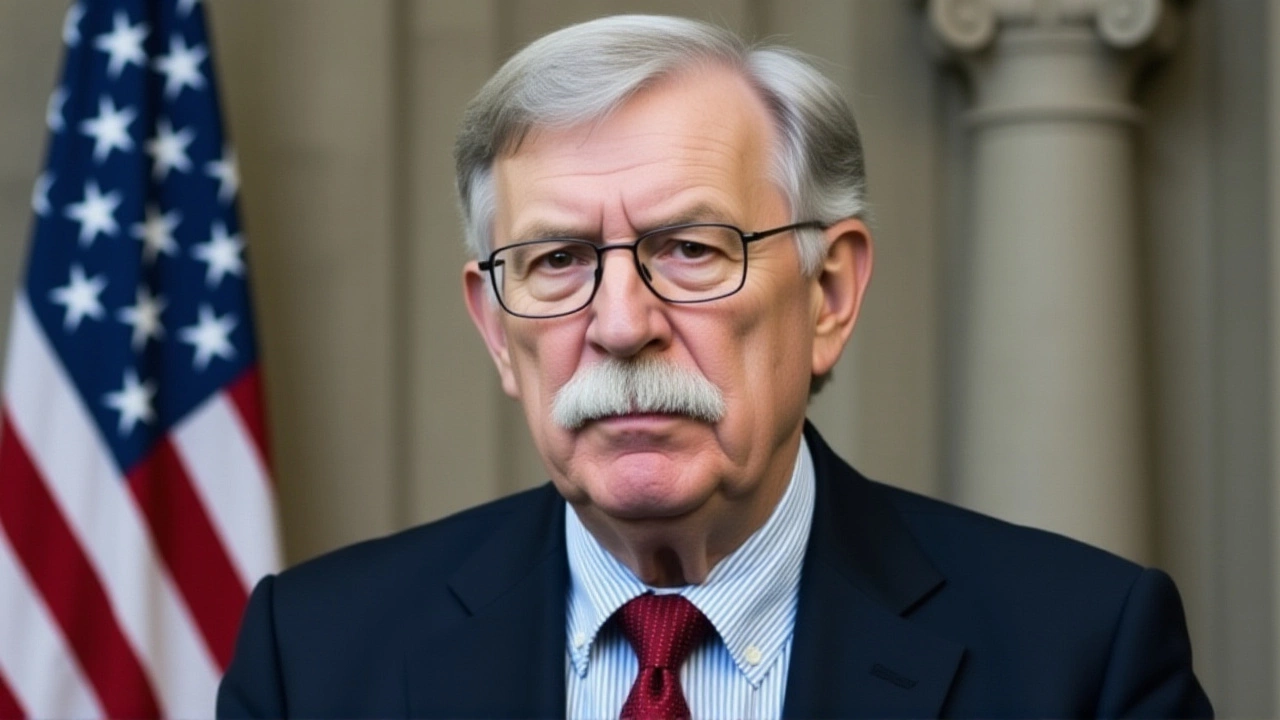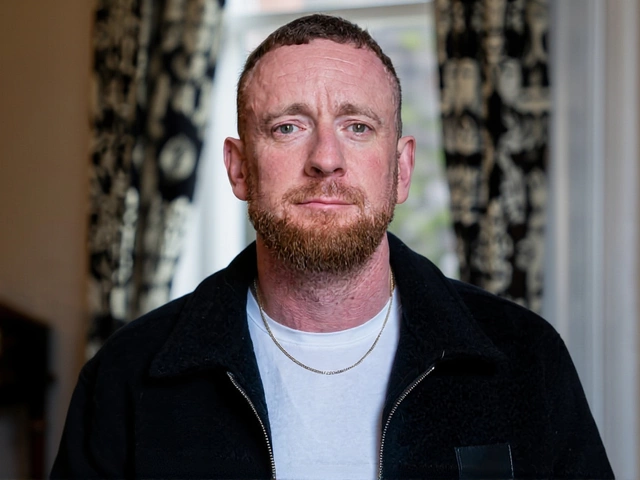
John Bolton Indicted on Classified Docs Charges in Maryland
When John Bolton, former national security adviser to Donald Trump, was slapped with an indictment Thursday, the legal drama instantly felt like a new season of political intrigue.
The grand jury in Greenbelt, Maryland handed down a sealed indictment on October 16, 2025, accusing Bolton of eight counts of unlawful transmission and ten counts of unlawful retention of classified documents. The case, catalogued as 25‑D‑KR‑314 in the U.S. District Court for Maryland, centers on alleged misuse of a personal email account and a messaging app to send information ranging from Secret to Top Secret.
Background: Bolton’s Rise and Fall
Bolton, a career diplomat who served under three presidents before joining Trump’s inner circle, became the most hawkish voice in the White House during his 2018‑19 stint as national security adviser. His tenure ended abruptly in September 2019 when Trump fired him, citing policy disagreements. Soon after, Bolton announced a tell‑all memoir, a move that turned him into one of Trump’s fiercest critics.
That memoir, slated for a 2025 release, triggered an intensive pre‑publication review by the State Department. According to sources, the review unearthed several documents that should have remained sealed. The review process, combined with a reported foreign hack of Bolton’s AOL email in 2020, set the stage for the current indictment.
Details of the Indictment
Prosecutors from U.S. Attorney's Office for the District of Maryland presented the grand jury with a timeline that stretches from early 2018 to just days after Bolton’s dismissal in 2019. They allege that Bolton used a non‑government email address to send at least eight classified files to unauthorized recipients. Seven of those transmissions allegedly occurred while he still held the adviser post; the eighth supposedly happened after he left the White House.
The indictment also claims Bolton retained ten classified documents in personal devices after his tenure ended. Federal agents from the FBI raided his Maryland home and a Washington, D.C., office in August 2025, seizing computers, phones, and external hard drives.
To secure a conviction, prosecutors must prove "willful intent"—that Bolton knowingly violated the law, not merely mishandled paperwork. The Justice Department is also seeking forfeiture of any assets tied to the alleged offenses.
Reactions from the Players
Bolton’s lawyer, Abbe Lowell, declined to comment, but Bolton issued a lengthy statement defending his record: “For four decades, I have devoted my life to America’s foreign policy and national security. I would never compromise those goals.” He framed the charges as part of a broader campaign of "Donald Trump's retribution" against anyone who dared criticize the former president.
Trump, speaking from the Oval Office later that evening, dismissed the indictment with a mix of sarcasm and disdain. "You're telling me for the first time," he said, before adding, "I think he's a bad person. I think he's a bad guy. Too bad, but that's the way it goes."
The case has been assigned to Theodore D. Chuang, a Maryland federal judge appointed by Barack Obama. Chuang previously ruled on components of Trump’s travel ban and, more recently, blocked an effort by Trump and Elon Musk to dismantle USAID.

Legal and Political Context
Bolton is the third high‑profile official to face federal charges after a fallout with Trump, following New York Attorney General Letitia James and former FBI Director James Comey. The Justice Department, now led by Attorney General Pam Bondi, has pursued a series of cases that critics argue are politically motivated.
Legal scholars point out that the Espionage Act, which underpins many classified‑information cases, has rarely resulted in convictions when intent is the crux. In United States v. O’Keefe (2016), a former defense analyst was acquitted because prosecutors couldn’t prove willful disclosure.
Given those precedents, Bolton’s defense team is likely to carve out a narrative that any transmission was inadvertent, perhaps hand‑carried to a friend for personal advice rather than malicious espionage.
Potential Implications
If convicted, Bolton faces up to 10 years per count for unlawful transmission and a similar term for retention, meaning a maximum sentence could top 180 years—though sentences are typically served concurrently. More realistically, a conviction could land him a decade behind bars, effectively ending any political comeback.
Beyond Bolton, the indictment sends a chilling message to former officials who publish memoirs or retain classified material. It may also embolden congressional oversight committees to push for stricter handling rules for classified information.
For Trump supporters, the case reinforces the narrative that the DOJ is weaponized against the former president’s allies. For detractors, it underscores the importance of accountability, regardless of political stature.

What’s Next?
The next courtroom appearance is scheduled for early December 2025, where Judge Chuang will likely set bail conditions and outline a pre‑trial schedule. Both sides are expected to file extensive motions—Bolton’s team on jurisdictional challenges, the prosecution on evidentiary admissibility of the seized devices.
In the meantime, the memoir release slated for November 2025 could add new layers to the saga. If the book contains further classified excerpts, the DOJ may seek additional charges.
Watch for statements from the Department of Justice and any potential appeals to the Fourth Circuit, which has a history of scrutinizing classified‑information cases.
Frequently Asked Questions
How might this indictment affect John Bolton’s future political ambitions?
A conviction would likely bar Bolton from holding any government position and could diminish his influence as a commentator. Even without a conviction, the legal cloud may make donors and media outlets hesitant to align with him.
What evidence does the prosecution claim to have?
Prosecutors say they recovered emails, messaging logs, and external storage devices from raids in August 2025. They allege eight distinct transmissions to unauthorized recipients and ten instances of documents stored on personal devices after Bolton left office.
Why is the case being handled in Maryland?
The indictment cites the grand jury convened in the U.S. District Court for the District of Maryland, where the initial FBI raids on Bolton’s Maryland residence occurred. Venue is therefore appropriate under federal law.
Could this case set a precedent for future classified‑information prosecutions?
If prosecutors secure a conviction based on willful intent, it would reinforce the notion that former officials are not immune from Espionage‑Act‑style charges, potentially tightening security protocols for departing staff.
What are the arguments from Bolton’s defense team?
Bolton’s lawyers are expected to argue that any transmission was accidental, that the documents were not classified at the time of sharing, and that the prosecution cannot prove the "willful" element required for a conviction.

Dexter Fairborn
Hi, I'm Dexter Fairborn, a professional gambler and gaming enthusiast. I've been involved in the world of gambling and gaming for over a decade, constantly refining my skills and strategies. Apart from playing, I also enjoy writing about various games, sharing my experiences, tips, and tricks with fellow gamers. My passion for gaming has led me to create engaging content that can help others improve their gameplay and enjoy the thrill of the game. Join me as we explore the fascinating world of gambling and gaming together.
Popular Articles
About
Welcome to Lightning Bonus Casino, your ultimate destination for thrilling gambling and gaming experiences. Explore our extensive collection of top-notch games and stay updated with the latest industry trends. Get ready to electrify your online gaming journey with our exclusive bonuses and promotions!

